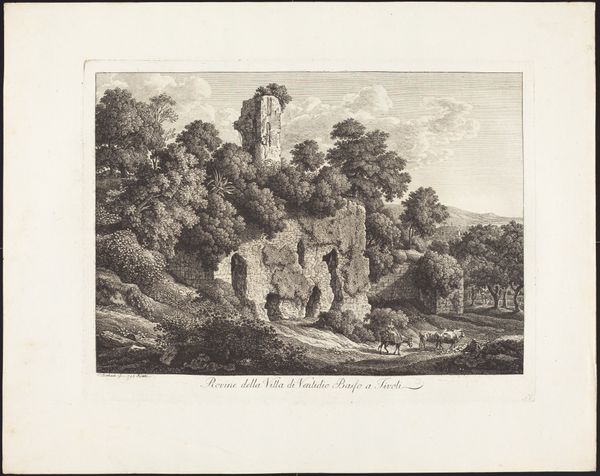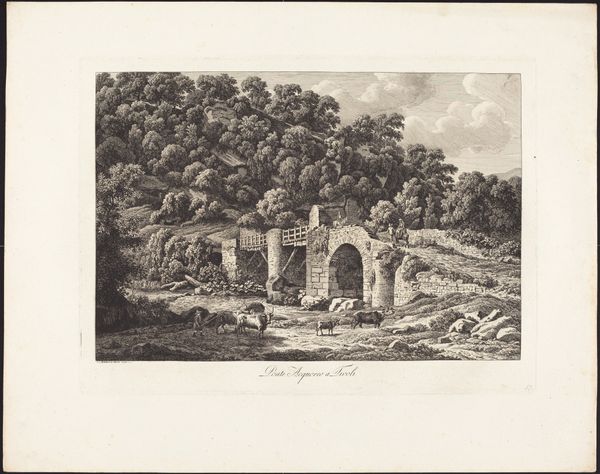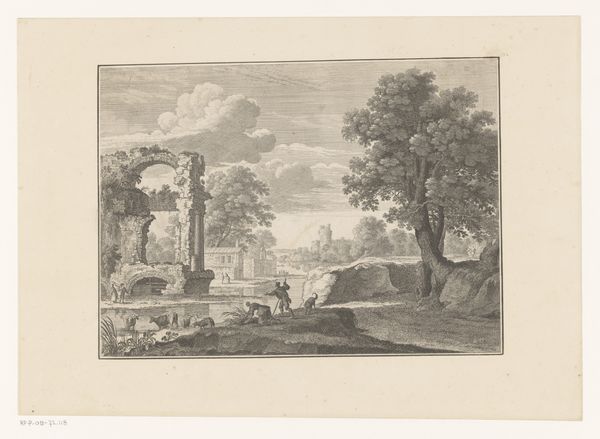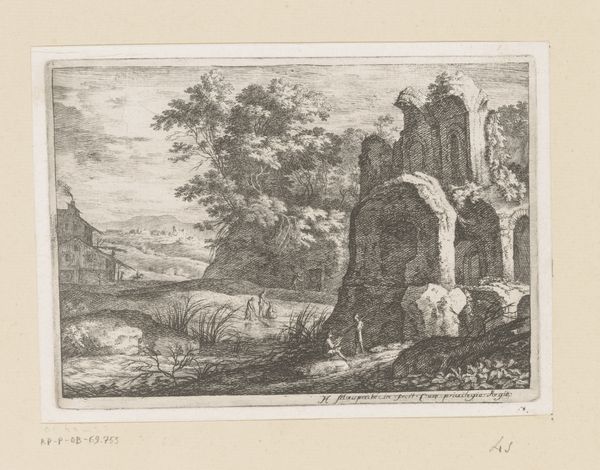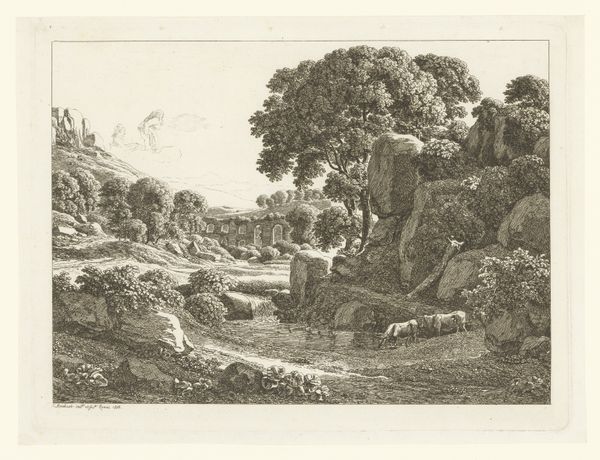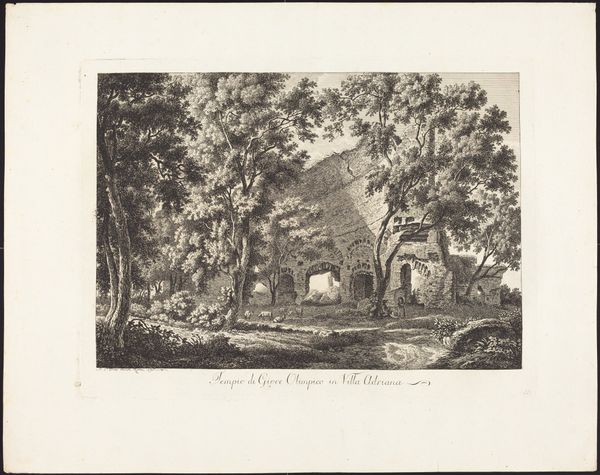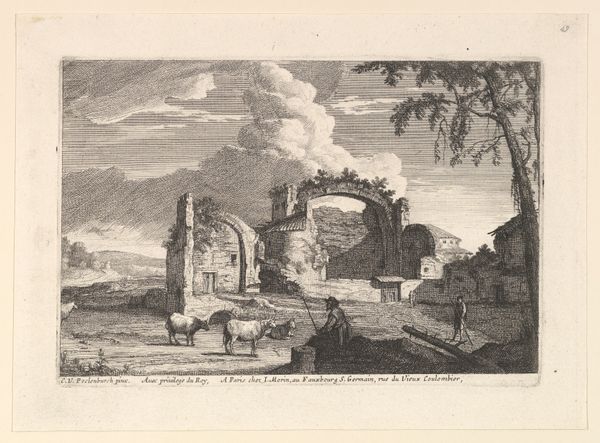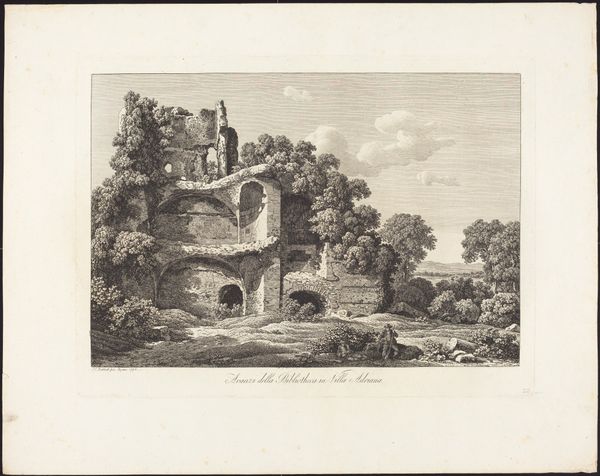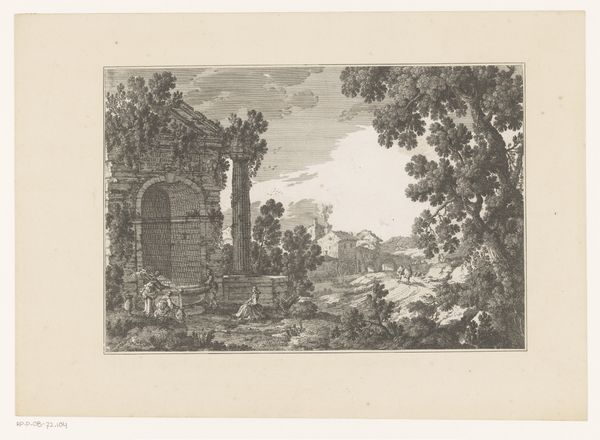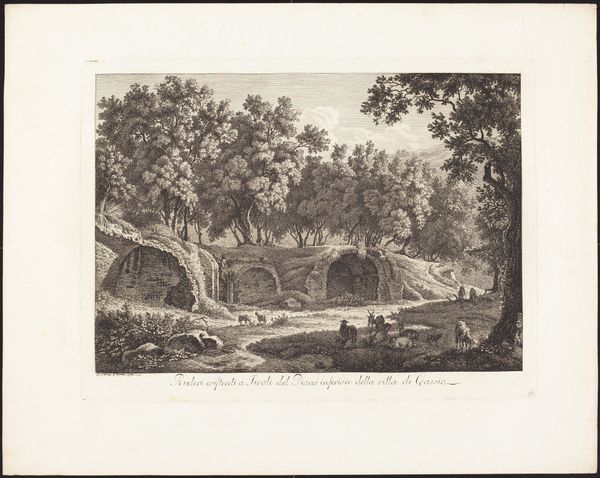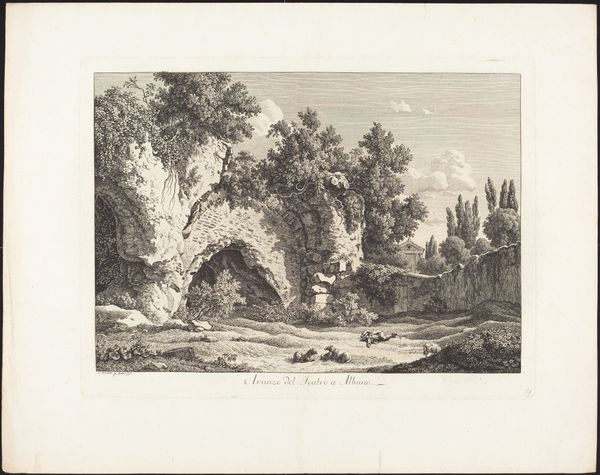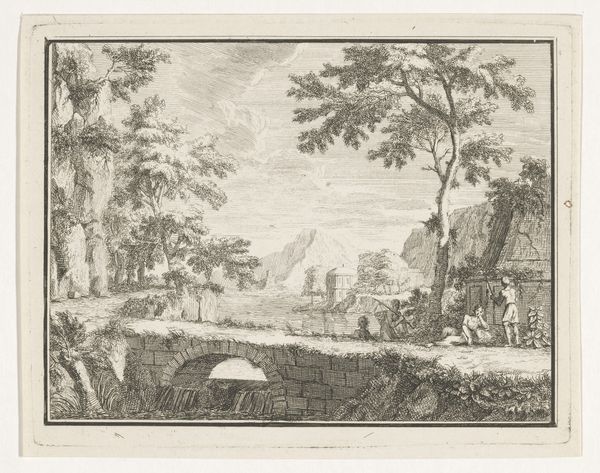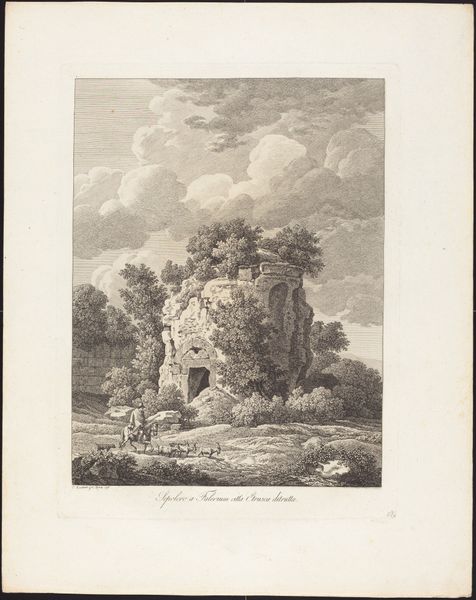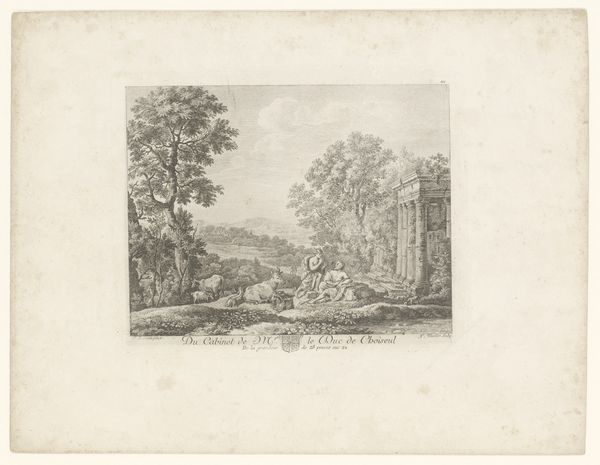
print, etching, engraving, architecture
#
neoclacissism
# print
#
etching
#
landscape
#
history-painting
#
engraving
#
architecture
Dimensions: height 280 mm, width 357 mm
Copyright: Rijks Museum: Open Domain
Friedrich Wilhelm Gmelin made this print of the baths at Hadrian's Villa, near Tivoli, as part of the eighteenth-century European obsession with antiquity. The image presents a pastoral scene of ruins, where the physical remains of the classical past are being consumed by nature. This aesthetic attitude can be seen as a comment on the politics of the period. On the one hand, a modernizing Europe looked to the past for models of civic virtue. On the other hand, the relative decline of the Italian states could be measured by the contrast between their present condition and the grandeur of Roman antiquity. Art academies played a key role in this revival of interest in all things ancient. The printmaker, Gmelin, would have been trained in classical styles and would have found a ready market among educated Europeans for such picturesque images. In order to better understand this artwork, we might research the Grand Tour, the history of art academies, and the political and economic conditions of eighteenth-century Italy.
Comments
No comments
Be the first to comment and join the conversation on the ultimate creative platform.
